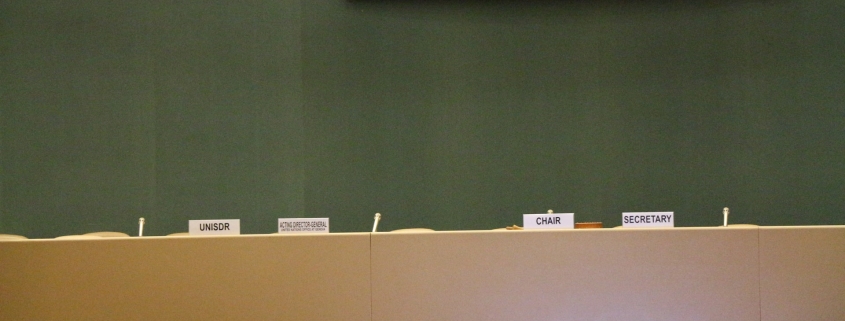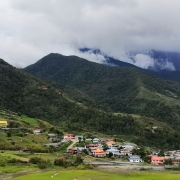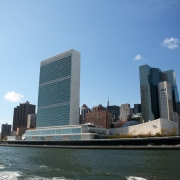What happens when the General Assembly convenes?
Topic of Study [For H1/H2 History Students]:
Paper 1: Safeguarding International Peace and Security
Section B: Essay Writing
Theme III Chapter 2: Political Effectiveness of the UN in maintaining international peace and security
The World Parliament
As one of the six principal organs of the United Nations, the General Assembly involves all 193 sovereign states to participate in global affairs. In comparison with the Security Council, the General Assembly functions as a representative facet of the United Nations to allow fair and equal political participation by all member states. Each member is given the right to express its opinion and vote on various matters.
The Three Types of Sessions
As stated in Article 20 of the Charter, the “General Assembly shall meet in regular annual sessions and in such special sessions as occasion may require”. There are three types of sessions: Regular sessions, special sessions and emergency special sessions. Let’s take a look at each type to comprehend the significance of its role in the United Nations.
1. Regular Sessions
Each year, the General Assembly holds the regular sessions, starting from September to December, and then resumes in January. The session will conclude once all issues on the stated agenda are addressed.
At the beginning of each regular session, the Assembly holds a general debate in which the member states express their views on a wide range of matters of international concern. Due to the great number of questions which the Assembly is called upon to consider (there were 154 separate agenda items at the 1988 session of the Assembly,) for example, the Assembly allocates most questions to its seven main committees:
An excerpt from “The United Nations: Structure & Functions Of An International Organisation” by Rumki Basu.
These committees address diverse matters, such as disarmament and related international security matters, economic and financial matters, social humanitarian and cultural matters, decolonisation, administrative and budgetary matters.
2. Special Sessions
The General Assembly may conduct special sessions at the request of the Security Council or a majority of member states. As of 2020, 31 special sessions have been convened by the General Assembly.
Notable special sessions included the deliberation of Palestine (1947-48) and the financial expenses incurred by the United Nations peacekeeping operations during the Suez and Congo Crises (1963).
Given that peacekeeping was specified in the Charter, the General Assembly deliberated on the legality of peacekeeping missions. The International Court of Justice delivered its advisory opinion on 20 July 1962 and recognised that peacekeeping operations in the Middle East and the Congo should constitute “expenses of the Organization” as stated in Article 17(2) of the Charter.
Recognizing the necessity of sharing equitably the financial burden of peace-keeping operations to the extent not otherwise covered by agreed arrangements, …
(a) The financing of such operations is the collective responsibility of all States Members of theUnited Nations;
An excerpt from the “Fourth Special Session” conducted by the General Assembly (14 May – 27 June 1963).
3. Emergency Special Sessions
Resolution 377A(V), also known as “Uniting for peace”, allows the General Assembly to convene in an emergency special session within 24 hours of a request by the Security Council or a majority of member states.
Between 1956 to 1982, nine emergency special sessions have been conducted by the General Assembly in response to situations where there appears to be “a threat to the peace, breach of the peace, or act of aggression”.
Although the “Uniting for peace” empowers the General Assembly to investigate serious threats to peace, these emergency special sessions did not always lead to favourable outcomes.
In its second emergency special session, the General Assembly requested the Secretary-General to send an observation commission to Hungary, ‘to investigate the situation caused by foreign intervention in Hungary’. While the Secretary-General named members of the commission, the Soviet Union and the Hungarian government never granted them access to the country, but the commission produced a report on the basis of over 100 interviews mostly with Hungarians who had fled the country.
An excerpt from “The United Nations Security Council and War: The Evolution of Thought and Practice Since 1945” by Vaughan Lowe, Adam Roberts, Jennifer Welsh and Dominik Zaum.
What can we learn from this article?
Consider the following question:
– How far do you agree that the United Nations General Assembly has fulfilled its Charter-defined aims?
Join our JC History Tuition and learn more about the United Nations and its organisational structure. The H2 and H1 History Tuition feature online discussion and writing practices to enhance your knowledge application skills. Get useful study notes and clarify your doubts on the subject with the tutor. You can also follow our Telegram Channel to get useful updates.
We have other JC tuition classes, such as JC Math Tuition and JC Chemistry Tuition. For Secondary Tuition, we provide Secondary English Tuition, Secondary Math tuition, Secondary Chemistry Tuition, Social Studies Tuition, Geography, History Tuition and Secondary Economics Tuition. For Primary Tuition, we have Primary English, Math and Science Tuition. Call 9658 5789 to find out more.











